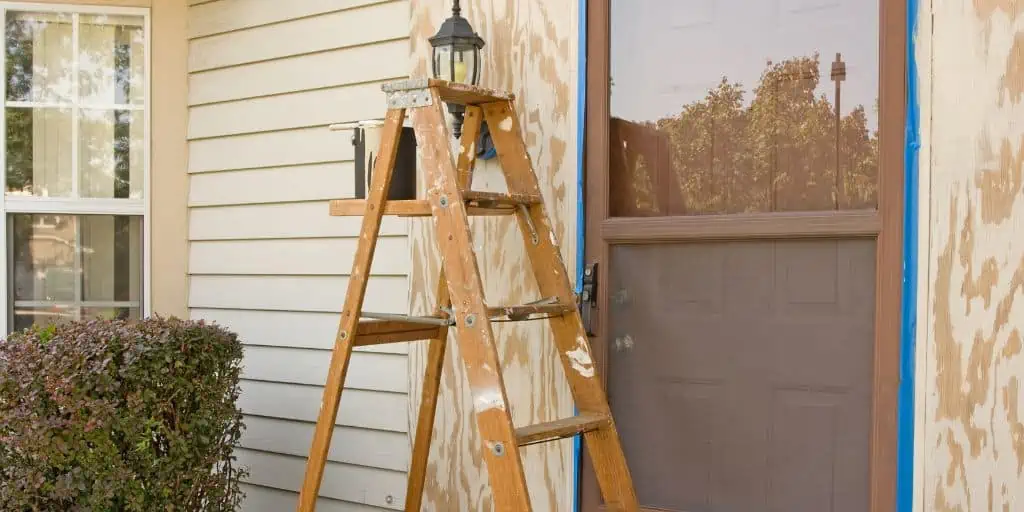
I spent many years as a landlord. Eventually, I divested my rental properties, and today, I invest passively in real estate.
Why?
Because being a landlord is more work than anyone tells you, it’s more passive than working a 9-5 job — but not at all passive like stocks, bonds, REITs, and syndications are passive. I understand why some investors consider passive rental income “a lie.”
RELATED: What Is “Passive Income” Exactly?
The public shares a misconception that landlords live high on the hog, getting rich off the backs of working people, all without lifting a finger. Every single component of that cultural belief is false.
Still, it begs the question: What work is required for rental properties? What costs landlords time?
Buying and managing rental properties may not require you to clock into a job at the same time every day, but it still requires plenty of work from start to finish. Keep the following tasks in mind before buying a rental property.
Finding Deals
As an investor memorably told me once:
“There’s no deal tree that you can just walk up to and pluck good deals.”
The MLS, as an open market, is—by definition—where you pay market pricing for properties. And market pricing for rental properties tends to leave slim cash flow margins.

This is just like the MLS, just less glamorous and aesthetically pleasing.
That doesn’t mean you can’t find good deals on the MLS. But even that requires work: scouring dozens of properties, perhaps visiting them in person, making offers, negotiating deep discounts, you name it.
The best deals aren’t found there at all, but rather on off-market properties where you aren’t competing and bidding against every other investor. These include “abandoned” properties, pre-foreclosure or other distressed properties, probate properties, and the like.
Reaching out to these owners costs labor and money. It takes effort and funds to identify them, to contact them via direct mail, text, or voicemail campaigns, and to screen leads as they come in.
In contrast, you can just buy shares in an index fund mirroring the S&P 500 and call it a day.
Funding Deals
You just spent 100 hours evaluating 80 potential deals, made 40 offers, and signed one contract of sale. Congratulations! Now you need hundreds of thousands of dollars actually to buy the property at closing.
If you have it lying around in a checking account somewhere, great. Most of us don’t, however, so we have to go out and line up financing.
Again, that takes hours of work—work to network with lenders, work to comparison-shop interest rates and fees for this specific loan, work to submit an application, and all the subsequent paperwork the lender demands.
The good news is that it gets easier. As you build relationships with portfolio lenders, they become easier to work with. They close faster, ask for less paperwork, and offer you their best possible rates with no haggling. But in the beginning, you start from scratch with them.
Initial Repairs
It’s possible to buy turnkey properties, either with tenants already in place or ready to be rented. But in my experience, few “turnkey” properties are in 100% perfect condition, and those that are sell at a premium.
No, in most cases, if you want any kind of bargain, you’re looking at properties that need at least some cosmetic updates, and possibly a full renovation. Read: more work.
Managing Contractors
You may not be swinging the hammer yourself on your nights and weekends, but you’ll still incur plenty of labor time. It takes time to get quotes from contractors, negotiate with them, oversee their work, demand high quality from them, and keep them on the promised timetable.
I have found contractors to be consistently difficult to work with, and it’s an experience I’ve heard reflected from other real estate investors time and time again. Managing contractors is one of those hidden challenges that no one expects when they get into real estate. It’s neither fun nor easy, and it’ll cost you time and money to learn the skills needed to manage contractors effectively.
Hiring a general contractor helps—and it adds to your costs. The pricier the contractors, the more professional they tend to be, both in their work quality and in their ability to do basic things like show up on time for appointments and keep a timetable. But if you’re paying retail prices for high-end contractors, you can expect a harder time keeping your budget.
Permits and Inspections
If you make any improvements beyond cosmetic ones, you need to file (and pay) for permits. Your contractor can potentially do this for you, but they’ll charge you a premium for it.
Filing is the easy part. When the work is complete, you have to schedule an inspection, and inspectors are not the easiest or most professional people to work with. I’ve known many inspectors to fail every property the first time they look at it, simply to prove to their supervisors that they’re making their rounds and “enforcing the law.”
In fact, I’ve known some inspectors who fail properties without a bribe.
Consider yourself warned.
Filling Vacancies
Once you get your Use & Occupancy permit, you’re free to advertise the property for rent.
And then show the property to prospective tenants, review rental applications as they come in, run tenant screening reports, call up landlord references and employers, draft and sign a lease agreement, and collect the security deposit and first month’s rent.
All while maintaining a written standard for which applications you’ll accept and keeping records of all applications. You do all this so you can prove you didn’t discriminate if a disgruntled applicant sues you because you chose someone else over them. More on lawsuits later.
How passive does all that sound?
Managing Tenants
Once you sign a lease, you don’t just sit back and watch your bank account grow. While more passive than the previous efforts required of you, you still incur some ongoing work.
Collecting Rents
Maybe you pay your rent or mortgage on time every month. I do (or did, back when I paid for housing), and I initially assumed everyone just paid their bills as the standard course of business.
Wow, was I wrong.
Some people never saw a bill they wanted to pay on time. They wait until someone chases them before they pay it.
Others might pay on time for a little while, then lose their job or get a divorce, or their car breaks down. Most landlords don’t report rents to the credit bureaus, and it’s the largest bill for most renters, making it an easy first choice for delaying payment.
So you have to send late notices, then official eviction notices, then file in court for eviction, then show up in court to the eviction hearing, then schedule a put-out date, AND then show up for it.
Enforcing Your Lease
Nothing makes you more jaded than watching people abuse your empathy.
I’ve heard every sob story in the book from tenants asking me to hold off “just one more week” from filing an eviction. In my early years as a landlord, I thought I was being a “good landlord” by offering extension after extension.
I eventually learned that it’s human nature to push boundaries, and it’s your job as a landlord to defend your boundaries as laid out in your lease. Some renters simply made up stories, others had no clear plan or budget for getting caught up. Few ever caught up on rent without me forcing their hand by filing for eviction.
And that doesn’t just go for unpaid rent. Tenants can break your rental agreement in other ways, from bringing in unauthorized occupants or pets to damaging your property to committing crimes in it.
It falls to you to enforce the two-way legal contract you signed with your renters. It’s often uncomfortable and is never fun. But it’s what you sign up for when you become a landlord.
Regular Inspections and Maintenance
How do you discover when a tenant has violated your lease?
By visiting the property regularly, of course. Which, in turn, requires work on your part.
I recommend visiting each rental unit every six months at least. It sends a clear message to the renter that you care about the property, that you’re paying attention, and that you’re not an absentee landlord.
Inspections aren’t just to look for lease infractions—it provides you a chance to look for maintenance issues that need attention. To catch problems in their infancy, before they become expensive.
Because real estate is, well, real. Buildings are physical objects that experience wear and tear, that deteriorate over time, that become outdated. They require ongoing upkeep and maintenance, which means (joy!) more working with contractors.
Inspections also give you a chance to check in with renters about their plans for renewing their lease and gauge whether you can retain them by making a requested property improvement.
Bookkeeping and Additional Accounting
I remember how simple my tax return used to be when I was a W-2 employee with no rental properties. It took me about an hour to prepare my own tax return.
Rental properties add complexity to your tax return. You have to sum up all income and expenses accurately and put them in the right places on your Schedule E. That includes depreciation, by the way—Uncle Sam will charge you depreciation recapture when you sell the property, whether you actually deducted for depreciation or not while you owned the property. I learned that nasty tax lesson the hard way.
I eventually gave up and hired an accountant to prepare my taxes for me. That added to my personal expenses each year.
But the accountant won’t keep accurate records of your income and expenses for you. You need to keep your own books, including expenses ranging from repairs to utilities to travel to insurance to mortgage interest and more.
If you don’t keep your books accurately, the best-case scenario is you pay more taxes than you should have. The worst case scenario is an IRS audit, and if you thought the rest of being a landlord is a lot of work, wait until you suffer through an audit.
Fending Off Lawsuits
People love to sue landlords.
Some of that stems from our aforementioned cultural hatred of landlords. But it also stems from the fact that landlords have at least one valuable asset that litigators know about: the property itself.
You can’t move or hide an investment property. If a tenant with a silver-tongued attorney sues you, they know they can eventually collect the judgment from you because it attaches as a lien against the property.
It’s also why cities often make landlords liable for their renters’ actions: they know they can collect from landlords, but it’s much harder to collect from tenants.
I’ve been sued as a landlord. It’s stressful, time-consuming, and expensive. And it cost me plenty of hours of sleep to boot.
What About Hiring a Property Manager?
If you yawned your way through all the work outlined above, shrugging it off with “I’ll just hire a property manager,” think again.
Sure, a property manager can take on some of the headaches for you. They show the property, review rental applications and screening reports, and show up in court for you for eviction hearings.
But when you delegate these tasks to a property management firm, you have to then manage the manager. You have to confirm they screened the tenants well, that they’re actually inspecting the property (thoroughly) every six months, and they’re getting the best value for you on repairs and maintenance. For that matter, you also have to watch out that they aren't charging you hidden fees and collecting kickbacks from contractors.

Managing the property manager is a recursive problem, similar to Juvenal's timeless epigram, “Who watches the watchmen?” (Quinn Dombrowski from Berkeley, USA, CC BY-SA 2.0, via Wikimedia Commons)
My experiences with property managers have been just as fraught as those with contractors. Property managers love to bury fees in their legal contract, such as fees for renewing leases with existing tenants, changing the locks, visiting the property, or hiring contractors to do, well, anything. Then they bury those fees in complex monthly statements.
Do honest, effective, and professional property managers exist? Certainly. But it’s an industry rife with mediocre and/or unscrupulous operators, and it usually takes plenty of effort on your part to screen, hire, and manage the best property managers.
Final Thoughts: Higher Hidden Costs on Lower-End Properties
I’ve found that the lower-end the rental property, the worse the hidden costs, both financial and to your time.
For example, the best property managers don’t work with low-end properties. Low-rent properties come with twice the work at half the commission. That leaves you with the dregs of property management options in your area.
Likewise, I’ve found higher default, eviction, and turnover rates at lower-end properties. All of which are where the bulk of landlords’ financial and time costs lie, as opposed to renters who just pay on time each month.
Lower-end renters tend to cause more abuse to the property, which in turn means more repairs and maintenance.
These have been my own experiences, and those of every other real estate investor I’ve ever spoken with on the subject. If you find me sharing these experiences offensive, by all means, go out and buy up every low-end rental property you can afford. Someone has to, and I’m just glad it’s not me anymore.





















